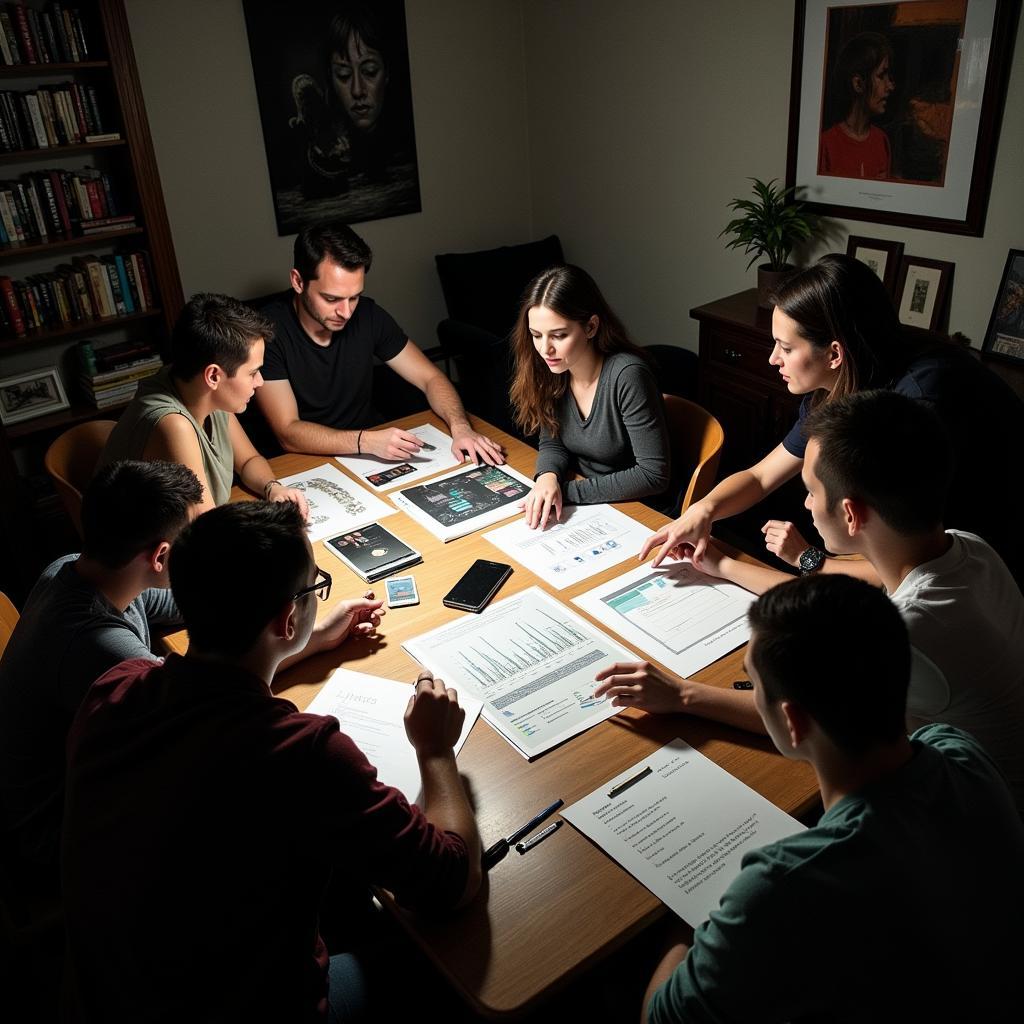Fidelity In Research is paramount, especially when delving into the enigmatic realm of the paranormal. It’s the bedrock upon which credible investigations are built, ensuring accuracy and minimizing the risk of misinterpretations or fabrications. Without it, we risk blurring the lines between genuine phenomena and wishful thinking, hindering our understanding of the unknown. This article explores the crucial role of fidelity in paranormal research, outlining its key principles and demonstrating its practical application in various investigative scenarios.
Maintaining accurate records is a cornerstone of fidelity in research. Detailed documentation of every observation, environmental factor, and piece of equipment used is crucial. This includes precise timestamps, photographs, audio recordings, and even seemingly insignificant details that might later prove relevant. This meticulous approach allows for thorough analysis and reduces the chance of overlooking critical clues. Meticulous documentation also allows other researchers to review the data, contributing to peer review and fostering a collaborative environment. Just as in acoustic research ar 2, precise measurements are essential for accurate analysis, so too is precise documentation in paranormal research.
Why is Fidelity in Research so Important in Paranormal Investigations?
Fidelity ensures the integrity of the data collected, safeguarding against biases and misinterpretations. In a field often shrouded in skepticism, maintaining the highest standards of research is crucial for lending credibility to findings. This rigorous approach not only strengthens individual investigations but also contributes to the overall advancement of paranormal research as a field of study. What questions should we be asking about the validity of paranormal evidence? How can we ensure our interpretations are grounded in sound data rather than preconceived notions?
Practical Applications of Fidelity in Research
Applying fidelity in a practical setting involves a multi-faceted approach. It encompasses everything from calibrating equipment and establishing clear research protocols to employing rigorous analytical methods and critically evaluating evidence. For example, when investigating alleged EVP (Electronic Voice Phenomena), researchers must eliminate all possible sources of mundane noise contamination. This requires a deep understanding of audio recording techniques and environmental factors that could mimic paranormal activity. Similarly, when analyzing photographs, fidelity demands careful scrutiny for signs of manipulation or natural phenomena that could be misconstrued as paranormal.
Maintaining Objectivity: A Key Component of Fidelity
Objectivity is the lifeblood of fidelity in research. It requires researchers to approach investigations with an open mind, acknowledging the possibility of both paranormal and conventional explanations. This unbiased perspective is essential for avoiding confirmation bias, a common pitfall where researchers tend to favor evidence that supports their existing beliefs. Maintaining objectivity also involves seeking alternative explanations for observed phenomena and subjecting evidence to rigorous scrutiny before drawing conclusions.
etymotic research er20 highlights the importance of quality equipment in capturing accurate data. Similarly, in paranormal research, reliable tools are essential.
The Role of Peer Review in Ensuring Fidelity
Peer review is an integral part of maintaining fidelity in paranormal research. Sharing findings with other researchers allows for independent scrutiny of data, methodologies, and interpretations. This process helps to identify potential biases, errors, or alternative explanations that may have been overlooked. Constructive criticism from peers strengthens the overall quality and credibility of the research, promoting a more robust and reliable body of knowledge.
 Peer Review in Paranormal Research: Enhancing Credibility
Peer Review in Paranormal Research: Enhancing Credibility
The Impact of Fidelity on the Future of Paranormal Research
By adhering to the principles of fidelity, paranormal researchers can enhance the credibility of their work and contribute to a more informed understanding of the unknown. This rigorous approach will not only strengthen individual investigations but also elevate the field as a whole, fostering greater acceptance and encouraging further exploration.
“In the pursuit of the paranormal, fidelity is not just a methodological guideline, it’s a moral imperative,” says Dr. Evelyn Reed, a renowned parapsychologist. “It is our responsibility to approach these investigations with the utmost integrity and rigor, ensuring that our findings are based on sound evidence and not wishful thinking.”
ar3a acoustic research emphasizes precision, a crucial aspect of fidelity. Similarly, accurate data collection and analysis are vital in paranormal research.
Common Misconceptions about Fidelity in Paranormal Research
A common misconception is that fidelity restricts creativity or intuition. However, fidelity actually enhances these qualities by providing a structured framework within which to operate. It allows researchers to explore their hunches and insights while maintaining a grounded approach, ensuring that their conclusions are based on evidence rather than speculation.
Conclusion
Fidelity in research is not merely a desirable quality; it is the very foundation upon which credible paranormal investigations are built. By upholding the principles of accuracy, objectivity, and rigorous methodology, researchers can unlock the secrets of the unknown and contribute to a deeper understanding of the paranormal world. Embracing fidelity is not a limitation, but rather a pathway to more meaningful and impactful discoveries. Fidelity in research strengthens the credibility of the field, allowing us to explore the mysteries of the paranormal with greater confidence and insight.
FAQ
- What is fidelity in research?
- Why is fidelity important in paranormal research?
- How can I improve fidelity in my own paranormal investigations?
- What are some common mistakes that compromise fidelity in research?
- How does fidelity contribute to the credibility of paranormal research?
- What role does peer review play in ensuring fidelity?
- How can technology be used to enhance fidelity in paranormal investigations?
Need help with your Paranormal Research? Contact us 24/7: Phone: 0904826292, Email: research@gmail.com or visit us at No. 31, Alley 142/7, P. Phú Viên, Bồ Đề, Long Biên, Hà Nội, Việt Nam.